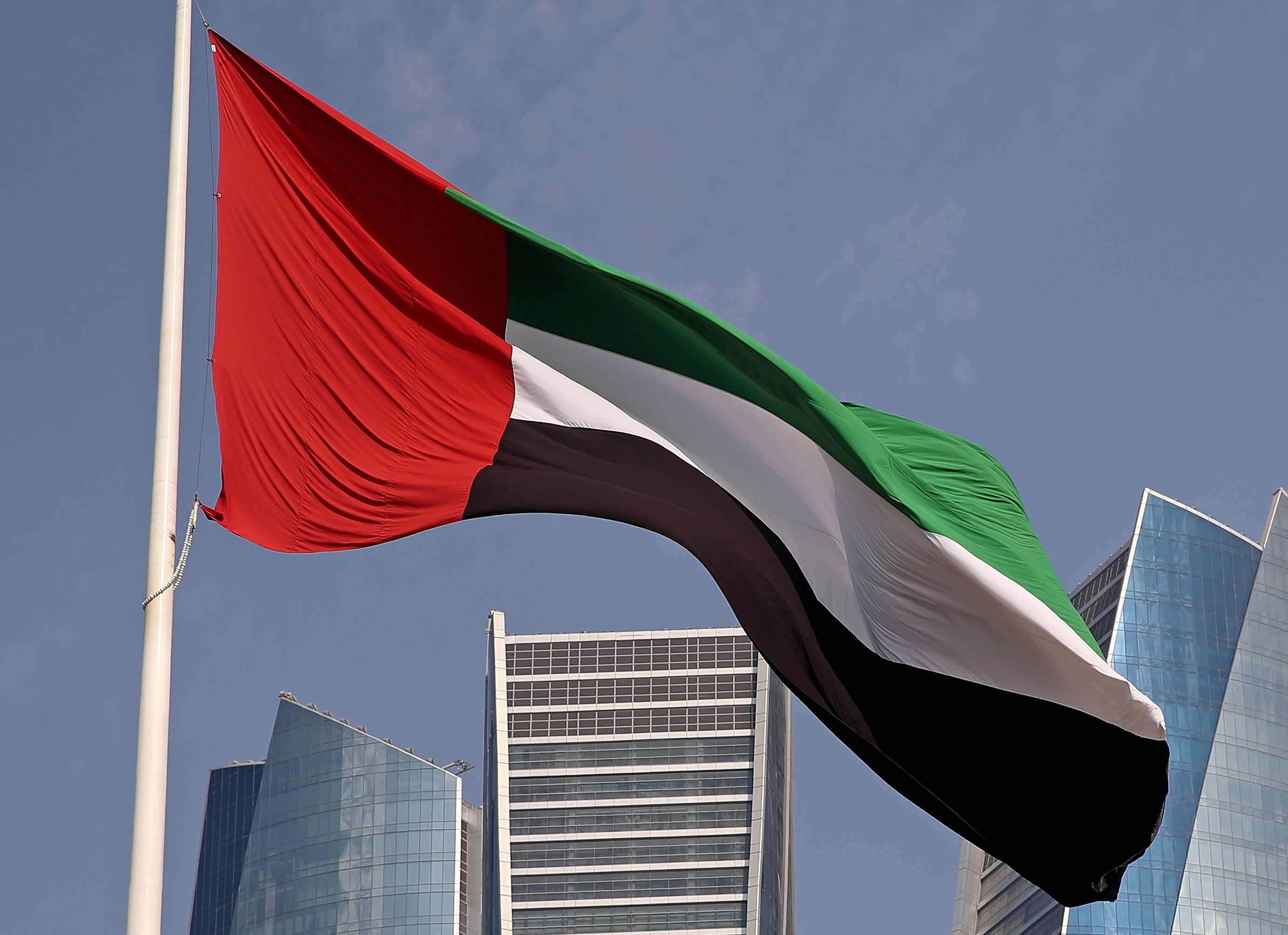The Persian Gulf Monarchies and the War in Ukraine
In March, Muhammad bin Zaid (MBZ) and Muhammad bin Salman (MBS), de facto rulers of the United Arab Emirates and Saudi Arabia, refused to answer Joe Biden’s call about the monarchies’ ability to increase oil production. Despite their declared neutrality, the positions of the Emirati and Saudi authorities regarding the war in Ukraine are becoming increasingly pro-Russian. The possible failure of further pressure from Western states on these monarchies would mean the beginning of a crisis in their relations with the EU and the United States.
_sm.jpg) POOL / Reuters / Forum
POOL / Reuters / Forum
Previous Actions
The energy resources in the Arab monarchies in the Persian Gulf were seen as the most likely alternative to ones from Russia in view of possible restrictions on supplies, even before the invasion of Ukraine. At the beginning of the year, European and U.S. leaders held talks with the authorities of Saudi Arabia, the United Arab Emirates (UAE) and Qatar to gain their favourable stance on increasing oil supply and redirecting gas supplies to European markets in the event of an escalation in Ukraine. The position of the Arab leadership, however, was ambiguous. The UAE and KAS announced that they are not planning to break out of the OPEC + from last year’s agreement limiting the increase in production. The UAE authorities also denied the declaration of the monarchy's ambassador to the U.S., Yousef al-Otaiba, that the Emirates were trying to influence OPEC members to increase the supply. After MBS and MBZ refused to talk to Biden by phone, they assured Vladimir Putin of their will to cooperate with Russia in the field of energy security.
Qatar is most willing to support Western countries. At the end of March, a delegation from Germany together with the Minister for Economic Affairs and Climate Action Robert Habeck initially agreed to intensify long-term cooperation with Qatar in the field of gas supplies to Europe, and the principality's authorities announced further sales of this raw material to the EU, even if other countries propose higher prices.
Common Interests
The leaders of Saudi Arabia and the UAE use their positive relations with Russia to force a U.S. policy towards the Middle East that is favourable to them through manoeuvring in regards to the war in Ukraine. The U.S. is traditionally the most important foreign partner of both countries, providing them with weapons (between 2015 and 2019, 73% of Saudi imports in this area came from the U.S.) and supporting their security. However, Biden's victory in the elections came with the deterioration of U.S. and Arab relations in the Persian Gulf, especially with the crowned prince of Saudi Arabia. Biden pledged to limit U.S. support to Saudi operations in Yemen, and arms sales to that country, and avoided talks with MBS due to his role in the assassination of Khashoggi, human rights violations in the kingdom, and attacks by the Arab coalition in Yemen on civilian facilities. Contrary to the objections of the Saudi Arabia and the UAE, the U.S. last year withdrew Patriot batteries from the kingdom, revoked the Houthis' recognition as a terrorist organisation, and began efforts to restore the nuclear deal with Iran (JCPOA). However, after the Houthis stepped up attacks on these countries, the U.S. increased support for the UAE air defence and sent Patriot missiles to Saudi Arabia when the kingdom was threatened with a shortage.
The Gulf monarchies believe that meeting Western requests for energy resources would mean taking a side in a conflict they deem as regional, and neutrality towards it key to their interests. Russia is an important partner in the field of energy cooperation for the UAE, Saudi Arabia and Qatar. Its joining OPEC in 2016 facilitated the stabilisation of oil prices, and the purchase of a 19% stake in Russia's Rosneft allowed Qatar to diversify its sources of export income. The partnership with Russia is also a counterweight to the ideological dispute between the rulers of the UAE and Saudi Arabia and Western countries. Since the Arab Spring, they have been strengthening relations with authoritarian partners to prevent the EU and the U.S. from conditioning the sale of weapons or economic cooperation with democratic reforms. According to the narrative of monarchs, only authoritarian model of governance will ensure the stabilisation of the Middle East. Thus, they support Russia's actions in Syria and strive to normalise the relationship between the Arab world and Syrian President Bashar al-Assad.
Tools of Pressure
The moves by Saudi Arabia and the UAE that favour Russia are now primarily an element of their negotiations with the EU and the United States. Russia does not have sufficient capacity to replace them in terms of supporting the security of the UAE and Saudi Arabia or in their trade relations. That is why monarchies take advantage of the situation on the oil market and relations with other countries to force the U.S. to guarantee further supplies of weapons and to support them in competition with Iran in Yemen. Saudi Arabia is considering settling some of its oil exports to China in yuan, which would limit the dollar's domination of the fuel market and could constitute a precedent encouraging other oil exporters to China to do the same. In turn, representatives of the UAE met in the Emirates with Bashar al-Assad, strengthening the legitimacy of his regime against the interests of the Western countries. The normalisation of relations with Assad was also the subject of the March tripartite meeting of the leaders of the UAE, Israel and Egypt.
For the Biden Administration, which declared the end of its unconditional support for Saudi Arabia during the election campaign, the return to unlimited sale of weapons to the kingdom would render its policy towards the Gulf ineffective. It would also jeopardise the JCPOA negotiations, the success of which will allow the replacement of some of the Russian resources with Iranian ones. Therefore, despite the recent escalation in Yemen, Biden maintains that only defensive weapons can be exported to Saudi Arabia. Due to the reluctance to make political concessions, the main tool for the Western countries will be financial pressure on the UAE and Saudi Arabia. Both the EU and the U.S. remain larger trading partners for Saudi Arabia and the UAE than Russia. Western countries (including Switzerland, The United Kingdom and the U.S.) are also the largest investors in the UAE. Saudi Arabia is also trying to increase its share in oil exports to European markets, as evidenced by the agreements signed this year by Saudi Aramco with Polish Orlen and the Klesch Group regarding supplying their crude oil to Denmark.
The pressure of Western countries on Saudi Arabia and the UAE is based on the possibility of hindering their transformation from economies based on the export of raw materials to financial hubs based on knowledge and innovation, for which it is necessary to maintain an investor-friendly market. This is not favoured by, for example, the decision of the Financial Action Task Force to add the UAE to the grey list of countries that require increased monitoring. Obliging the Emirates to additional control of financial institutions was most likely related to reports about the so-called Russian shell companies operating in the state. The U.S. authorities are also putting pressure on U.S. shale oil producers to increase extraction in order to reduce the price of the raw material and guarantee energy security in Europe, which will lower the importance of the Gulf states for the EU.
Conclusions and Perspectives
From the EU's point of view, the most important positive change in the Arab monarchies' approach to the war in Ukraine would be to increase oil production and gas supplies to the EU. The lack of such decisions is due to the strengthening of the alliances of authoritarian leaders in the region and their attempts to force changes in the U.S. policy towards the Persian Gulf. The West would benefit from actions in the field of public diplomacy emphasising its key role in the defence and transformation of Arab Gulf states, which will not be able to be replaced by China or Russia. The EU may also consider greater openness to long-term contracts for gas supplies from Qatar.
For the UAE and Saudi Arabia, the priority is the commitment of the U.S. and EU countries to greater support for their security and to tighten their position on Iranian activity in the region, such as recognising the Houthis as a terrorist organisation. The US is unlikely to change its approach to the conflict in Yemen or negotiations with Iran. However, they can, like the EU, increase their commitment to maintaining the security of the Persian Gulf trade routes.
Due to the critical attitude towards Biden's politics and the negative relations between the leaders of Saudi Arabia and the United States, also on the personal level, the rulers of Saudi Arabia and the UAE have an increasingly unfavourable approach to Western countries in the context of both - the war in Ukraine and their position in world trade and politics. The uncompromising attitude of Saudi Arabia and the UAE is demonstrated by the lack of changes in their positions, even after the UAE obtained additional support from the U.S. for their air defence and Saudi Arabia – Patriot missiles. Maintaining this attitude and intensifying rapprochement with China and Russia, even in the face of continued support for the security of Saudi Arabia and the UAE, may give rise to a crisis in relations with the West. This could entail additional pressure on EU countries, such as Poland, to look for ways to diversify the supply of energy resources other than cooperation with Saudi Arabia and the UAE.




